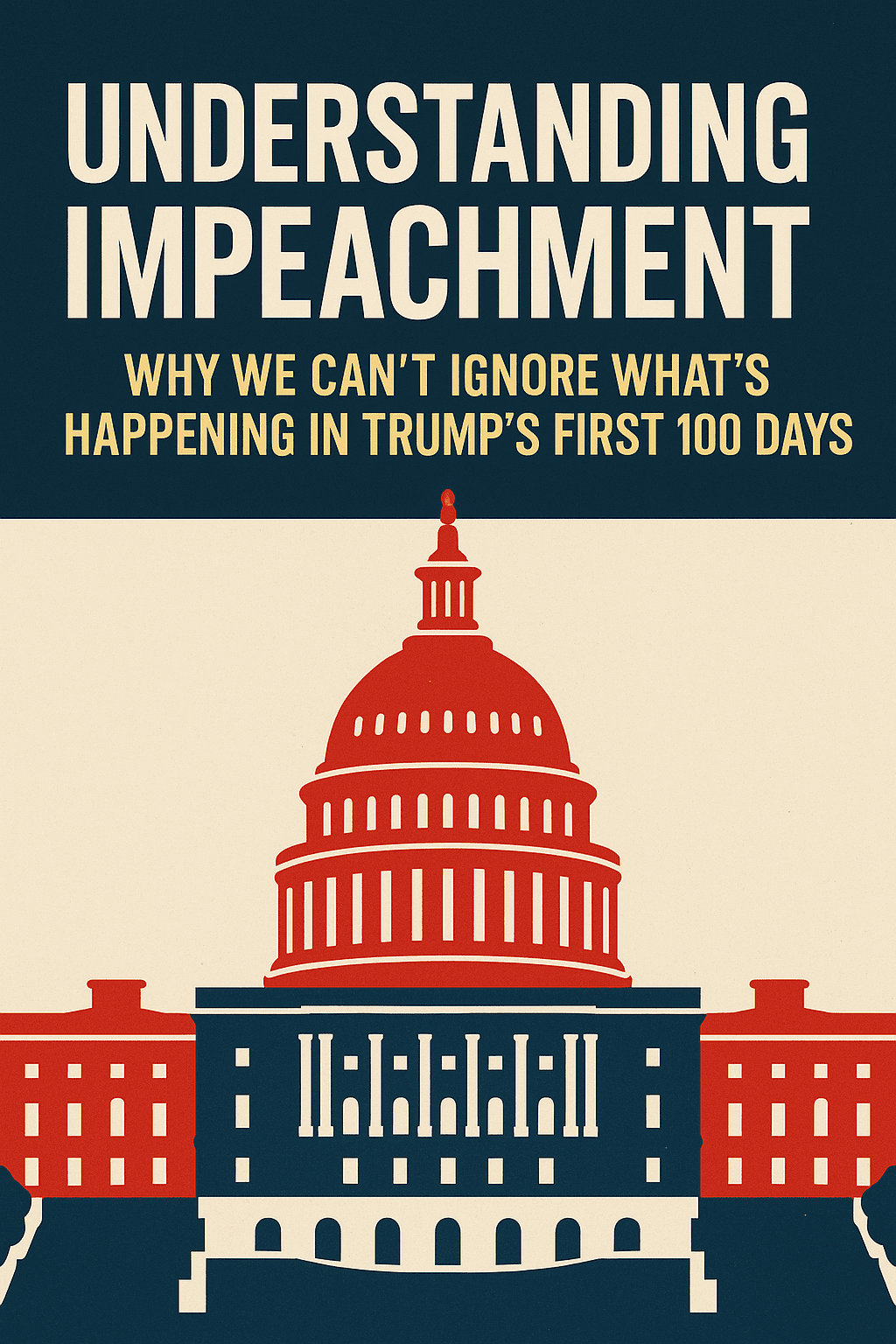
What Moms Really Need on Mother’s Day: To Be Truly Seen
May 14, 2025
Trump’s Dictator Erotica
May 14, 2025Cedar Rapids, Iowa
A LITTLE MORE THAN FIVE YEARS AGO, a little-known mayor from South Bend, Indiana named Pete Buttigieg headed over to nearby Iowa with his eyes on winning the Democratic nomination for president. Donald Trump was in the White House and Democrats seemed rudderless, with questions abound about whether the party had the vigor to fight back or needed generational change.
On Tuesday, Buttigieg returned to the Hawkeye State, his eye once again on a Donald Trump-occupied Oval Office and his party still very much mired in internal debates about its direction and its leaders.
Except, of course, so much is different now.
The Democratic party is trying to answer why it lost to Trump not once but twice. It is at odds not just over how aggressively to fight back against the president but over why its coalition has frayed even more. And Joe Biden is not actively involved in the primary contest, but is instead casting a shadow over nearly everything party officials say and do.
Over the course of seventy-five minutes, it became clear just how much the present moment is different for Buttigieg, too. No longer an up-and-coming mayor, he is now a former cabinet secretary—still young in years, but with a new beard and a well-earned status as a fixture on the national political scene. His weightier reputation is an asset (as evidenced by the more than 1,800 people who packed into an auditorium in downtown Cedar Rapids on an unseasonably hot mid-May evening to hear his vision for the country). But it is also a burden—the Biden administration legacy could be a steppingstone or a millstone.
“I am not here saying we got to make things back the way they were in 2023. The hard truth is, if our government, our politics, our society and our economy were working, we wouldn’t be here,” he said, alluding to Democrats’ out-of-power status. “We gotta come up with some new answers.”
The problem, even after Tuesday, is it’s not clear if they can.
Buttigieg’s town-hall event, hosted by the group VoteVets, was emblematic of a Democratic party at a crossroads. It’s a party increasingly consumed by debates over how to effectively go after Trump, how to win back working-class voters, and how to move on from the Biden years. It’s a party that feels the need to reach moderates but is still resistant to moderate policies. It’s a party that wants to reach voters who may be disengaged but isn’t certain what issues to highlight or what media to use.
Buttigieg, to his credit, has the rare ability to take on these questions without seemingly offending either side. He spoke about the immensity of the moment facing the country: “We are being tested on nothing less than whether the United States of America is, in fact, the freedom-loving people that we believe and know ourselves to be,” he said.
And as he took questions from the audience, he said that he disagreed with the strategy favored by some party members, like James Carville—that Democrats should stay quiet while Trump screws things up. “[Republicans] may not be good at governing, but they are really good at allocating blame,” he explained. Buttigieg said he takes “comfort in the fact that the president is unpopular,” but said that “doesn’t mean my side wins.”
But focus on the specifics and you can get the sense that even Mayor Pete—eloquent and thoughtful as they come—is still sorting it all out. When asked, for instance, about transgender rights, Buttigieg said the party should “revisit some of the things that we have had to say policy-wise that haven’t kept up with the times,” but that “doesn’t mean ever throwing vulnerable people under the bus.”
As late-arrivers searched for extra folding chairs to sit in, Buttigieg spoke about holding Trump accountable and the importance of living up to the promise of American democracy. He talked about how DOGE was impacting veterans and said he was outraged by Trump’s decision to accept a luxury jet from Qatar. He said that what “makes America great is its ability to wrestle with its darkest demons and come out stronger and better,” as the room shook with applause. Somewhere in the crowd, Buttigieg fans were circulating “I’m all in for Pete” bumper stickers.
The lines (minus the invocation of DOGE) could easily have been uttered five years ago at a less-well-attended town hall in Des Moines. What was different, perhaps, was what was not said.
Unlike in 2019, when Buttigieg won over the college-educated crowd with his casual references to Ulysses and the philosopher John Rawls, he seemed less eager this time around to bring up his fluency in Norwegian. Instead, he jokingly let the crowd know that he did not go to law school and reassured them that it was not an “academic concern” to be worried about freedom and democracy.
THE CROWD THAT SHOWED UP on Tuesday evening seemed desperate to look forward; to be excited about a Democratic candidate again and hopeful about the future of the party. Attendees said that they knew it was early to be talking about 2028, but they were enthused. Some drove from hours away just to see Buttigieg. One man shouted from the audience about how refreshing it was to hear a leader speak in complete sentences, as the audience erupted into applause.
“[Democratic leaders] need to be younger. Joe Biden was too old and he should have never run again,” said 70-year-old Lois Staff as she sat in the bleachers waiting for Buttigieg. “He’ll just go on Fox News and nail their asses. I’m so impressed by him.”
Buttigieg isn’t running for anything yet, but he’s among a group of Democratic leaders who are widely assumed to be laying the groundwork for 2028 presidential campaigns and are traveling to states that vote early in the primary calendar. Illinois Gov. JB Pritzker spoke last month in New Hampshire and Maryland Gov. Wes Moore and Minnesota Gov. Tim Walz are both scheduled to speak to the South Carolina Democratic Party later this month.
But aside from Kamala Harris (if she decides to run for president again) none of the other 2028 hopefuls faces a more challenging task than Buttigieg when it comes to distancing himself from Biden.
In Iowa, Buttigieg mentioned his experience as transportation secretary but did not talk about the ex-president. He said that Democrats needed a different message, particularly on the economy. He compared it to a marriage:
If someone you love is upset, and your response is, ‘You shouldn’t be upset, you should be happy actually.’ Anybody ever try that? How’d that go over? That does not meet people where they are. People are upset for a reason and we got to have that dialogue.
Buttigieg made a point to stick around after the town hall, shaking hands and posing for selfies until the last audience member left. Before disappearing backstage, he stopped at the end of the rope line to take a few questions from the small group of reporters that attended the event. There, he was given another chance to discuss the president he had served, the man whose physical fragility and mental acuity is under a microscope this week. Once more, he seemed unsure.
“Every time I needed something from him, from the West Wing, I got it,” Buttigieg said, when asked if Biden experienced cognitive decline while in office.
As for whether the party would have been better off if Biden had never run for re-election, Buttiegieg gave the equivalent of a verbal shrug: “Maybe.”
— Sen. Chris Murphy (D-Conn.) was a bit less apprehensive about weighing in on Biden. In an interview with Politico, Murphy, who is also viewed as a potential 2028 candidate, said that there’s “no doubt” that Biden suffered cognitive decline in office. He also said that it would have been better for the party if Biden had declined to run again.
“I mean, isn’t that self-evident? We lost,” Murphy said. “Obviously, in retrospect, we should have done something different. The likelihood is the odds were pretty stacked against us no matter what, but clearly people were looking for change and neither Biden nor Harris were going to be able to offer a real message of change.”
— California Gov. Gavin Newsom on Wednesday called for the state to scale back health insurance for undocumented immigrants. The move is an effort to balance the state’s budget, but it also marks a retreat from his goal to provide universal health care in the state. As the New York Times notes, Newsom “framed his proposed cuts as more a matter of fiscal necessity than a philosophical change.” California is facing a $12 billion deficit and the changes he proposed could save about $5.4 billion.
— Riggs won NC’s Supreme Court battle, but elections will face long-term consequences
— The Golden Age of the Fried-Chicken Sandwich
— Six Friends Tried to Plan a Girls’ Trip in a Group Chat. Things Went Sideways.
— Democrats pull off an upset in Nebraska, electing Omaha’s first black mayor
Great Job Lauren Egan & the Team @ The Bulwark Source link for sharing this story.







